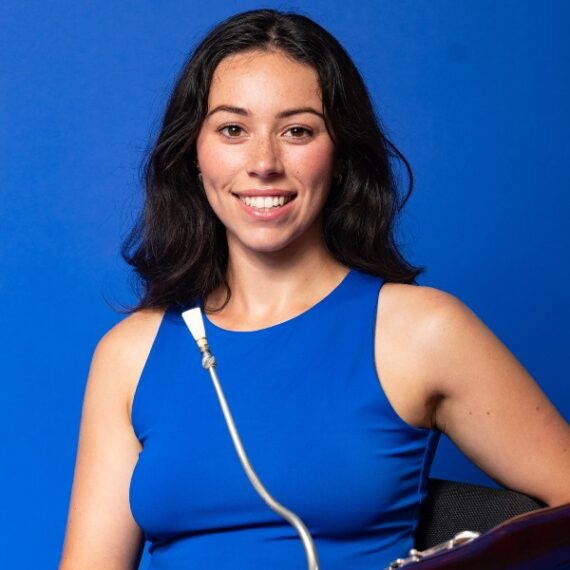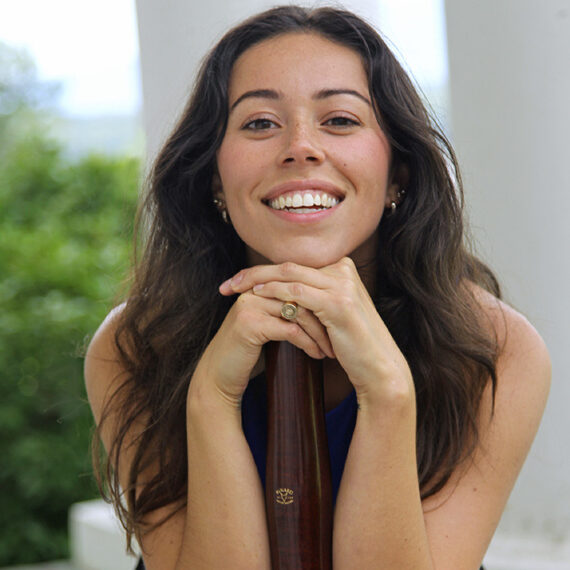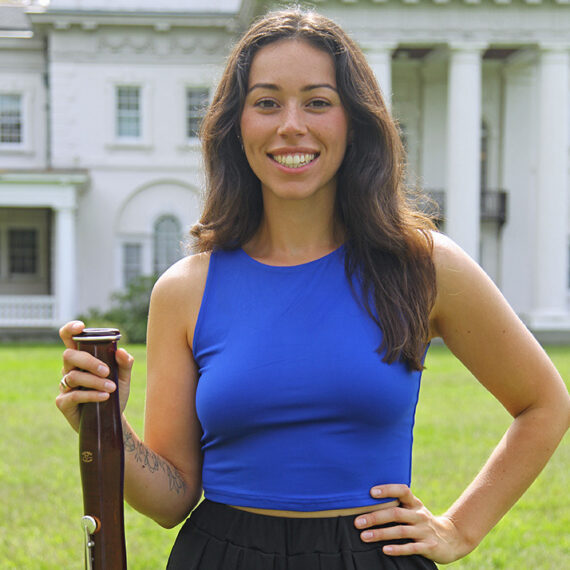Appearances
Pierre Monteux School, Maine, 2022; Chautauqua Music Festival, 2023
What is your earliest memory of classical music?
When I was in elementary school, we had a highly competitive choir program. I remember learning about Handel and Bach from my beloved choir director. We got to perform for the Texas Music Educators Association Conference my 4th grade year.
Was there a teacher who was particularly impactful/helpful? What made this instructor stand out?
I have had so many, I could never credit just one. My choir teachers, band directors, bassoon teachers, college ensemble directors—I’ve been lucky that every music teacher and director I’ve ever had taught me so well. My undergraduate bassoon professor, Wilfred Roberts, is still someone I call on a regular basis for advice. He constantly pushed me further than I thought I could go and helped me realize that I am the only person/thing that can stand in my way.
What made you decide to become a musician? Was there a particular performance or person that influenced your decision?
I just remember feeling like there was nothing else I could do. When we decide to become musicians, it’s not because it’s our favorite activity and we’d like to make a life out of it. It’s because music is all there is for us. There is no other option. Towards the end of my junior year of high school, I remember talking to my band directors about majoring in music. The percussion director, whom I knew just as well as my band directors, said to me, “Is there anything other than music you could imagine yourself doing? Because if so, do that.”
How did you hear about TŌN? What inspired you to apply?
I heard about TŌN from a friend I was going to school with. I was graduating and I knew I was
finished. I didn’t want to do another typical academic program and I wanted to be a part of an orchestra that was going to push me and keep my momentum going. After hearing about the rigor and intensity of TŌN, I decided to apply.
What is the most memorable performance you ever had?
Mahler’s Symphony No. 1 at the Meyerson Symphony Center in Dallas in my second year at Southern Methodist University
What is your proudest achievement as a musician?
I played principal bassoon on Shostakovich’s 9th Symphony for two concerts. I remember being really happy with how I controlled my nerves and was able to play the way I wanted to.
Is there a person or people you most respect in your field and why?
I really respect the teachers that give their all every day, every lesson, every rehearsal they go to. I can’t imagine how exhausted they can get from the constant moving and traveling, but somehow still be excited and energized to teach. Marc Goldberg, who is actually on faculty here and at my alma mater, NEC, is a prime example.
Tell us about a time you almost gave up but didn’t.
My first year of graduate school was challenging for me. I’d never been far from my home and my family. I always hated the cold growing up, and to be in Boston after living in North Texas all my life was not very fun for me (and it was an especially snowy and dark winter that year). I was struggling to adapt to some things at the school, and I was strongly considering dropping out and moving back to Texas. But luckily the sun came out again, the temperature went above 40, and my mother didn’t raise a quitter.
Do you have a favorite non-classical musician or band?
Muse is probably my favorite band, but I’ve been listening to a lot of Joji and Chappell Roan this summer.
If you weren’t a musician, what would you be doing?
Any time I’ve had a part-time job, it’s been in coffee shops. I love making and serving coffee.
What is a surprising part of playing your instrument that you think most people don’t know?
The most important part of our instrument is our reed! We have to make our own reeds by hand, and there are an unlimited number of ways to do each step. It is an extremely personal part of our instrument that differs from person to person. Even the bassoonists that play in the world’s best orchestras each make their reeds differently from one another.
What is the biggest challenge and/or surprise about playing in an orchestra?
Once I learned that playing in an orchestra is just playing in a large chamber ensemble, it all became easier and clearer to me. I’m constantly trying to scan with my eyes and ears, from looking at the conductor to the concertmaster to the principal flute to the first stand of violas and so on. Obviously, we listen with our ears but our eyes are also a powerful tool for listening.
What advice would you give your younger self or anyone starting out?
Don’t be so hard on yourself. Allow room for mistakes and lay off on all the pressure!
What do you wish you knew starting out that you know now?
If you don’t have questions, you’re not studying enough.




